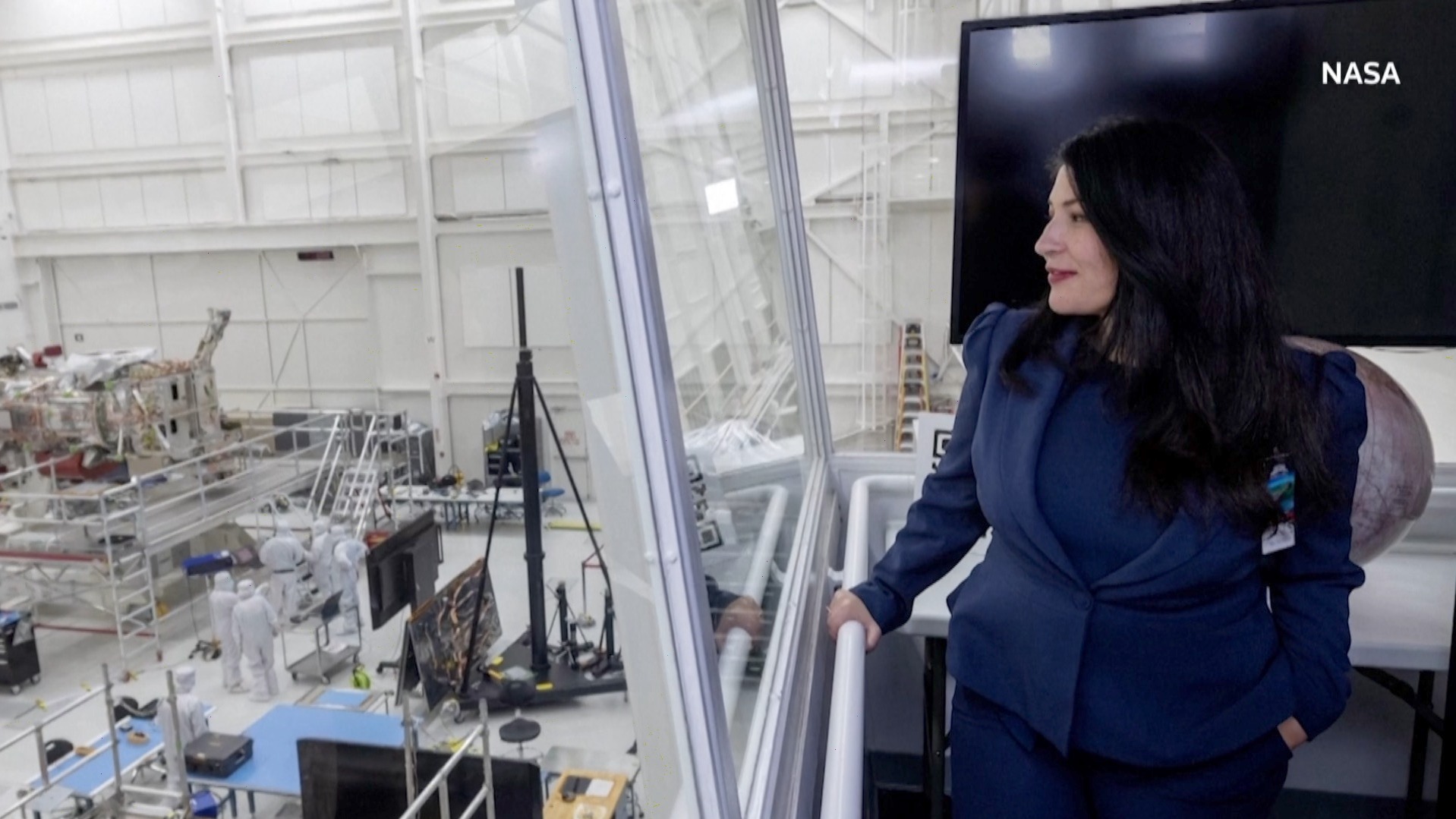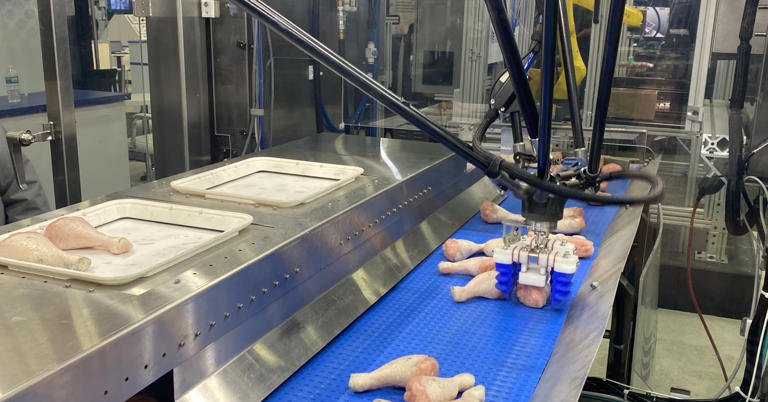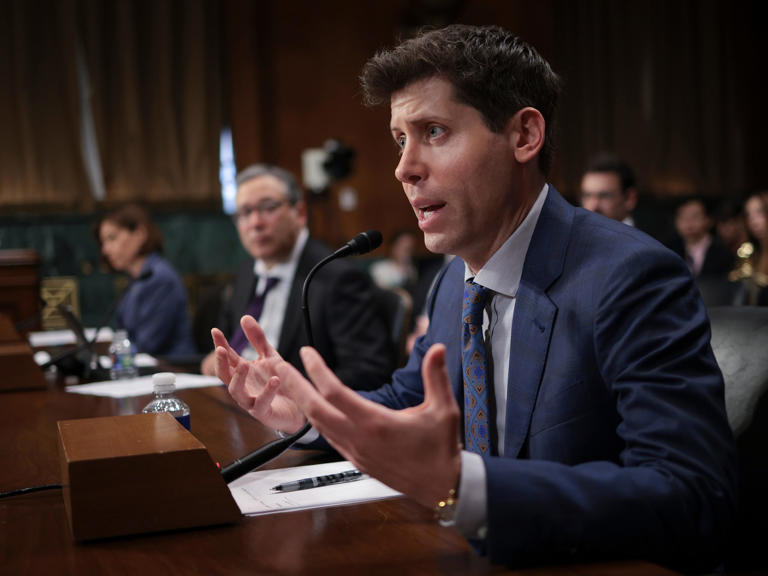Story by Erum Salam in New York • The Guardian
Yesterday

Photograph: Katie Adkins/AP
A coalition of publishers, booksellers, librarians and readers filed a lawsuit on Friday against the Arkansas state government, over a book ban law set to go into effect in August.
Related: Illinois set to become first state to end book bans
Carol Coffey, the president of the Arkansas Library Association and lead plaintiff, told the Guardian: “Library workers across Arkansas are rightly concerned that the overly broad edicts of Act 372 will prevent them from serving their patrons as they have always done, by providing a wide variety of materials to fill their information needs, and perhaps more importantly, materials that allow each child to see themselves in the books in their library.”
The plaintiffs argue the new law is illegal because it is a direct attack on free speech guaranteed by the first and 14th amendments to the US constitution.
They call Act 372 a censorship law that seeks to “ban books in libraries and criminalize librarians”.
Coffey said: “The primary mission of the Arkansas Library Association is to support libraries and library workers and to defend intellectual freedom. We join in this lawsuit because it is the best way for us to fulfill our mission.”
Act 372 was signed on 31 March by Sarah Huckabee Sanders, once White House press secretary under Donald Trump and now Arkansas’s Republican governor.
The law will subject librarians to criminal charges if they are found to have furnished any item deemed “harmful to minors”.
Democracy Forward, a non-profit legal advocacy group, is leading the legal action on behalf of the coalition which also includes the Central Arkansas Library System.
In the filed complaint, the legislation is described as a “vague, sweeping law that restrains public libraries and booksellers”.
Proponents of the new law say it will protect children from “indoctrination” and shield them from issues surrounding the teaching of race and racism in US history, sexual orientation and gender identity.
The Arkansas law is one of several in Republican-led states. Other lawsuits against such laws have been filed across the US.
Last month, the writers’ organization PEN America and the publishing company Penguin Random House filed suit against a Florida school district, for implementing book bans.
On Friday, Coffey told the Guardian: “My hope is that all residents of Arkansas and the US will be able to read freely, that all parents will be able to make the choices they believe best for their families and that those choices will not be limited by the desires of a few outspoken people who believe they know best for everyone.”

Photograph: Katie Adkins/AP
A coalition of publishers, booksellers, librarians and readers filed a lawsuit on Friday against the Arkansas state government, over a book ban law set to go into effect in August.
Related: Illinois set to become first state to end book bans
Carol Coffey, the president of the Arkansas Library Association and lead plaintiff, told the Guardian: “Library workers across Arkansas are rightly concerned that the overly broad edicts of Act 372 will prevent them from serving their patrons as they have always done, by providing a wide variety of materials to fill their information needs, and perhaps more importantly, materials that allow each child to see themselves in the books in their library.”
The plaintiffs argue the new law is illegal because it is a direct attack on free speech guaranteed by the first and 14th amendments to the US constitution.
They call Act 372 a censorship law that seeks to “ban books in libraries and criminalize librarians”.
Related video: Illinois bill will cut off public funding to libraries that ban books
(Straight Arrow News) Duration 1:56 View on Watch
Coffey said: “The primary mission of the Arkansas Library Association is to support libraries and library workers and to defend intellectual freedom. We join in this lawsuit because it is the best way for us to fulfill our mission.”
Act 372 was signed on 31 March by Sarah Huckabee Sanders, once White House press secretary under Donald Trump and now Arkansas’s Republican governor.
The law will subject librarians to criminal charges if they are found to have furnished any item deemed “harmful to minors”.
Democracy Forward, a non-profit legal advocacy group, is leading the legal action on behalf of the coalition which also includes the Central Arkansas Library System.
In the filed complaint, the legislation is described as a “vague, sweeping law that restrains public libraries and booksellers”.
Proponents of the new law say it will protect children from “indoctrination” and shield them from issues surrounding the teaching of race and racism in US history, sexual orientation and gender identity.
The Arkansas law is one of several in Republican-led states. Other lawsuits against such laws have been filed across the US.
Last month, the writers’ organization PEN America and the publishing company Penguin Random House filed suit against a Florida school district, for implementing book bans.
On Friday, Coffey told the Guardian: “My hope is that all residents of Arkansas and the US will be able to read freely, that all parents will be able to make the choices they believe best for their families and that those choices will not be limited by the desires of a few outspoken people who believe they know best for everyone.”

























